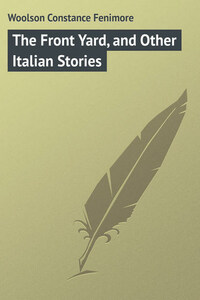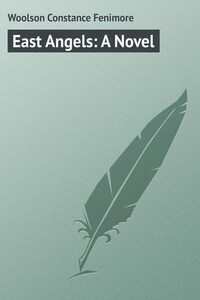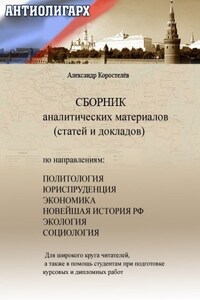"WELL, now, with Gooster at work in the per-dairy, and Bepper settled at last as help in a good family, and Parlo and Squawly gone to Perugia, and Soonter taken by the nuns, and Jo Vanny learning the carpenter's trade, and only Nounce left for me to see to (let alone Granmar, of course, and Pipper and old Patro), it doos seem, it really doos, as if I might get it done sometime; say next Fourth of July, now; that's only ten months off. 'Twould be something to celebrate the day with, that would; something like!"
The woman through whose mind these thoughts were passing was sitting on a low stone-wall, a bundle of herbs, a fagot of twigs, and a sickle laid carefully beside her. On her back was strapped a large deep basket, almost as long as herself; she had loosened the straps so that she could sit down. This basket was heavy; one could tell that from the relaxed droop of her shoulders relieved from its weight for the moment, as its end rested on a fallen block on the other side of the wall. Her feet were bare, her dress a narrow cotton gown, covered in front to the hem by a dark cotton apron; on her head was a straw bonnet, which had behind a little cape of brown ribbon three inches deep, and in front broad strings of the same brown, carefully tied in a bow, with the loops pulled out to their full width and pinned on each side of her chin. This bonnet, very clean and decent (the ribbons had evidently been washed more than once), was of old-fashioned shape, projecting beyond the wearer's forehead and cheeks. Within its tube her face could be seen, with its deeply browned skin, its large irregular features, smooth, thin white hair, and blue eyes, still bright, set amid a bed of wrinkles. She was sixty years old, tall and broad-shouldered. She had once been remarkably erect and strong. This strength had been consumed more by constant toil than by the approach of old age; it was not all gone yet; the great basket showed that. In addition, her eyes spoke a language which told of energy that would last as long as her breath.
These eyes were fixed now upon a low building that stood at a little distance directly across the path. It was small and ancient, built of stone, with a sloping roof and black door. There were no windows; through this door entered the only light and air. Outside were two large heaps of refuse, one of which had been there so long that thick matted herbage was growing vigorously over its top. Bars guarded the entrance; it was impossible to see what was within. But the woman knew without seeing; she always knew. It had been a cow; it had been goats; it had been pigs, and then goats again; for the past two years it had been pigs steadily – always pigs. Her eyes were fixed upon this door as if held there by a magnet; her mouth fell open a little as she gazed; her hands lay loose in her lap. There was nothing new in the picture, certainly. But the intensity of her feeling made it in one way always new. If love wakes freshly every morning, so does hate, and Prudence Wilkin had hated that cow-shed for years.
The bells down in the town began to ring the Angelus. She woke from her reverie, rebuckled the straps of the basket, and adjusting it by a jerk of her shoulders in its place on her back, she took the fagot in one hand, the bundle of herbs in the other, and carrying the sickle under her arm, toiled slowly up the ascent, going round the cow-shed, as the interrupted path too went round it, in an unpaved, provisional sort of way (which had, however, lasted fifty years), and giving a wave of her herbs towards the offending black door as she passed – a gesture that was almost triumphant. "Jest you wait till next Fourth of July, you indecent old Antiquity, you!" This is what she was thinking.
Prudence Wilkin's idea of Antiquity was everything that was old and dirty; indecent Antiquity meant the same qualities increased to a degree that was monstrous, a degree that the most profligate imagination of Ledham (New Hampshire) would never have been able to conceive. There was naturally a good deal of this sort of Antiquity in Assisi, her present abode; it was all she saw when she descended to that picturesque town; the great triple church of St. Francis she never entered; the magnificent view of the valley, the serene vast Umbrian plain, she never noticed; but the steep, narrow streets, with garbage here and there, the crowding stone houses, centuries old, from whose court-yard doors issued odors indescribable – these she knew well, and detested with all her soul. Her deepest degree of loathing, however, was reserved for the especial Antiquity that blocked her own front path, that elbowed her own front door, this noisome stable or sty – for it was now one, now the other – which she had hated and abhorred for sixteen long years.
For it was just sixteen years ago this month since she had first entered the hill town of St. Francis. She had not entered it alone, but in the company of a handsome bridegroom, Antonio Guadagni by name, and so happy was she that everything had seemed to her enchanting – these same steep streets with their ancient dwellings, the same dirt, the same yellowness, the same continuous leisure and causeless beatitude. And when her Tonio took her through the town and up this second ascent to the squalid little house, where, staring and laughing and crowding nearer to look at her, she found his family assembled, innumerable children (they seemed innumerable then), a bedridden grandam, a disreputable old uncle (who began to compliment her), even this did not appear a burden, though of course it was a surprise. For Tonio had told her, sadly, that he was "all alone in the world." It had been one of the reasons why she had wished to marry him – that she might make a home for so desolate a man.














